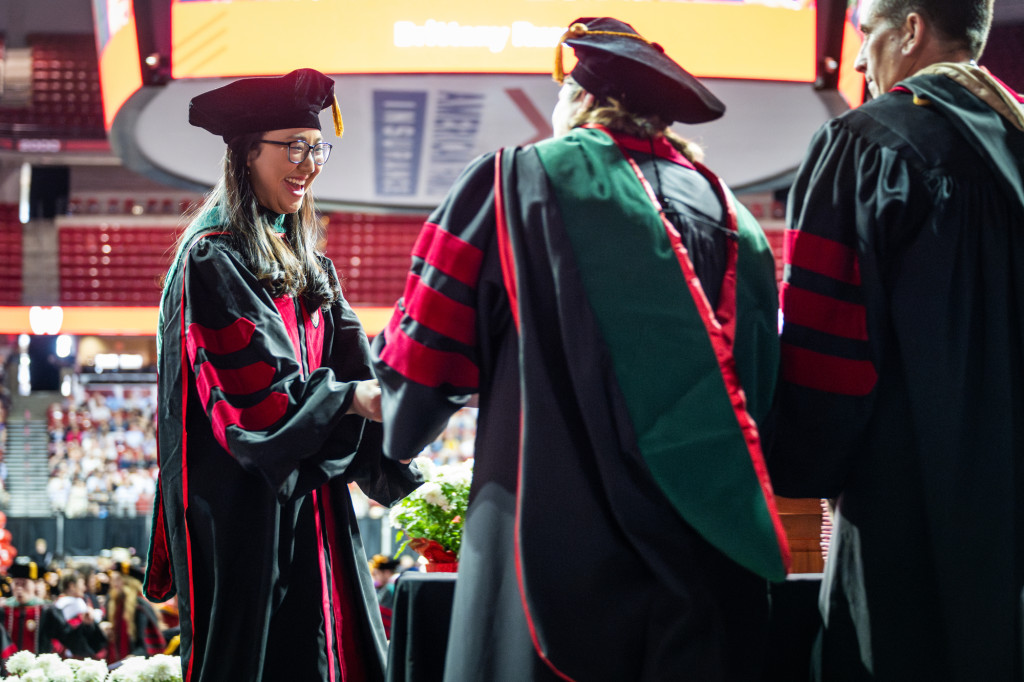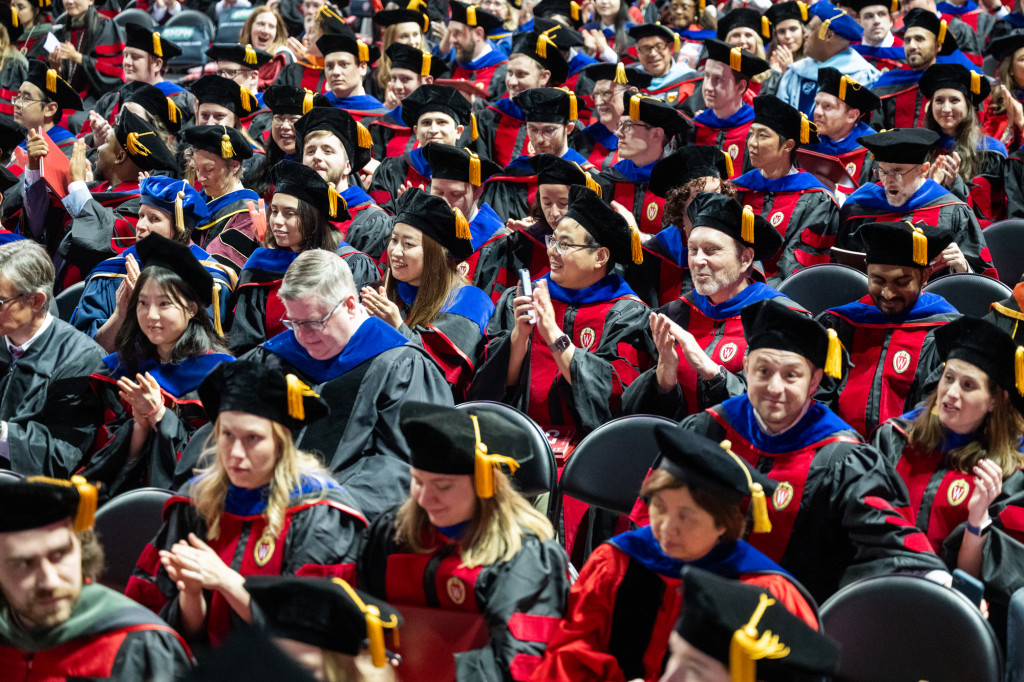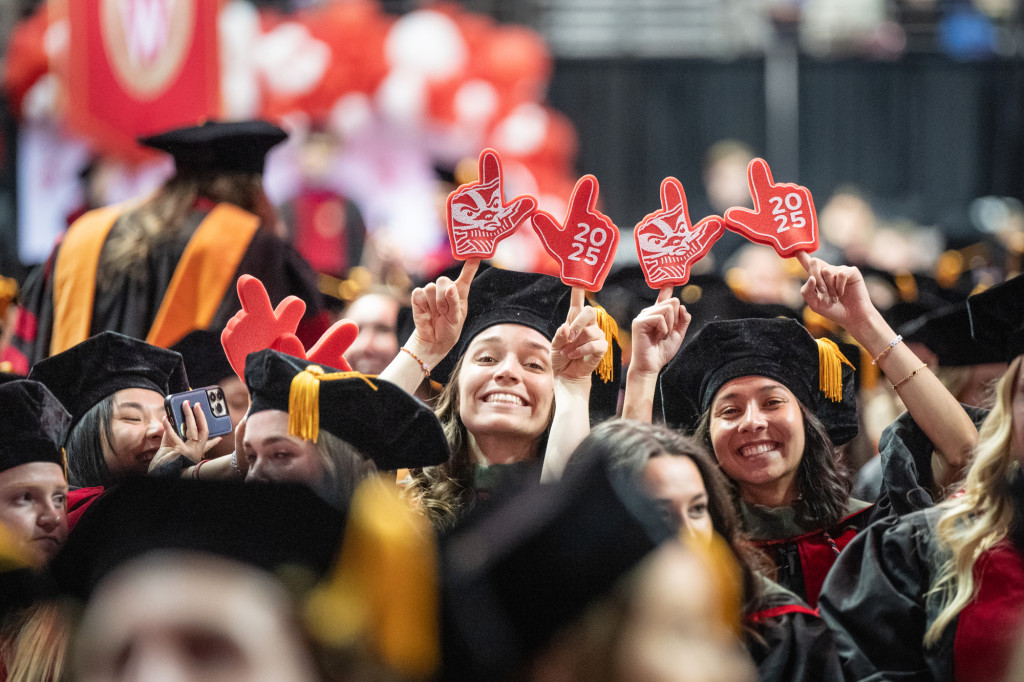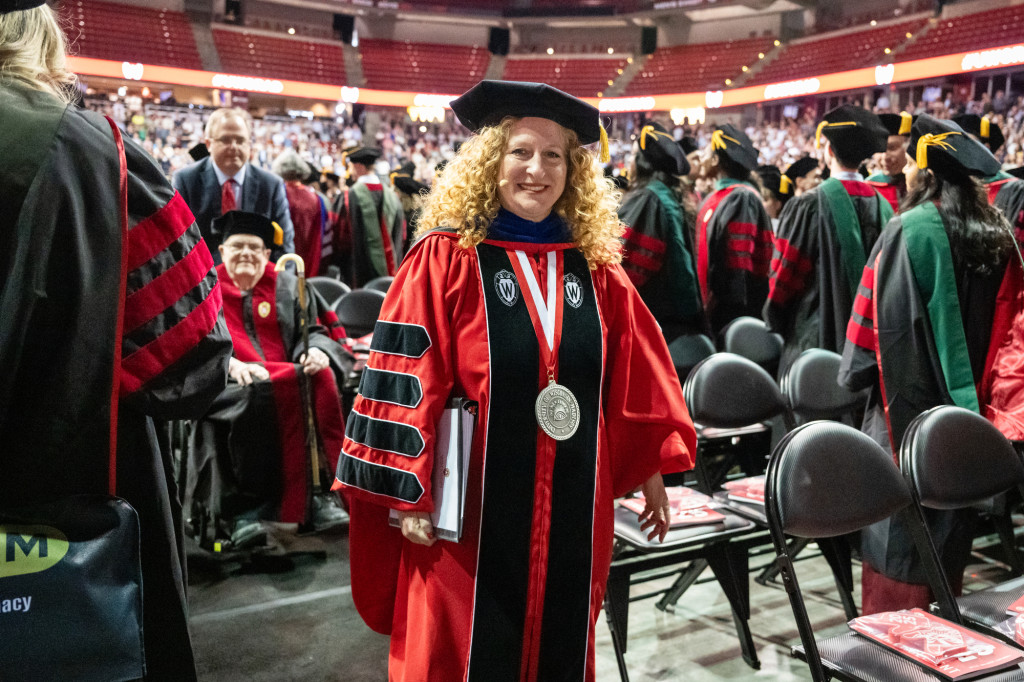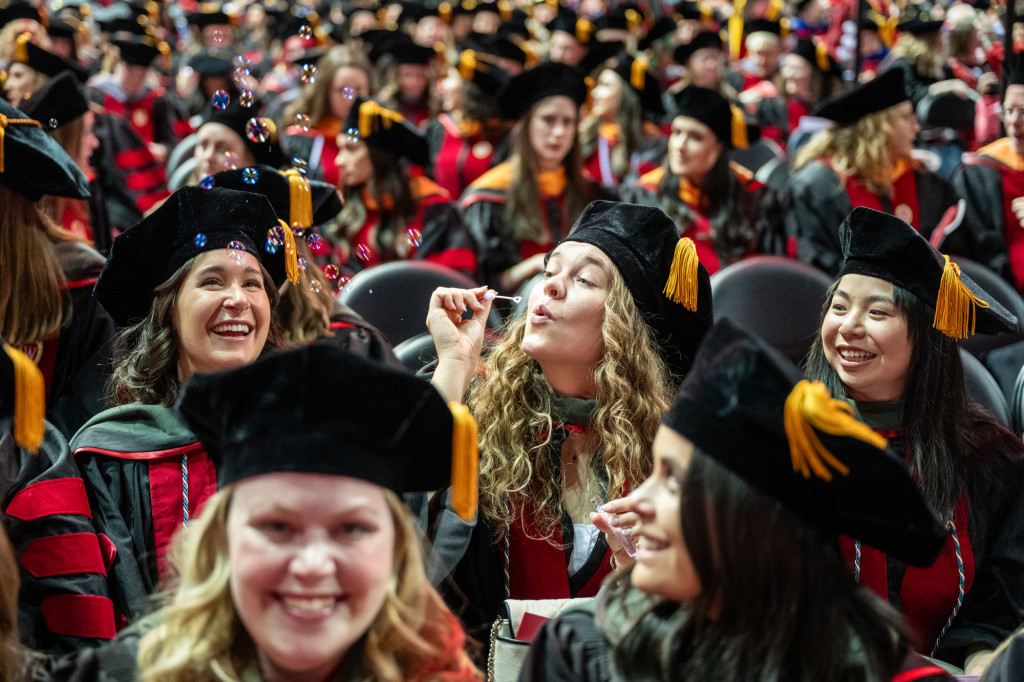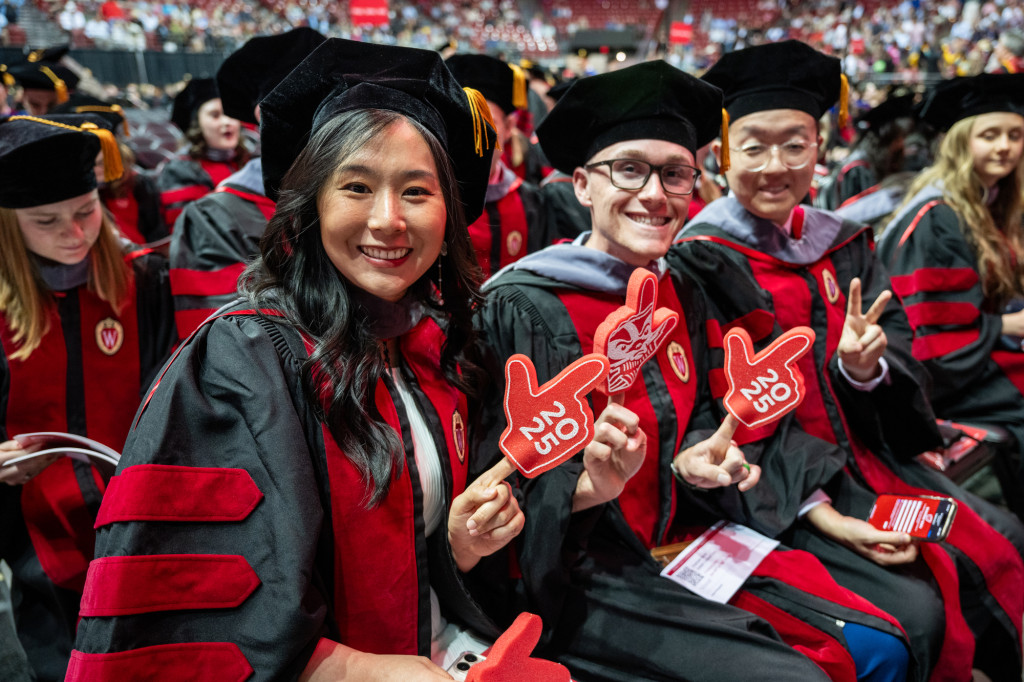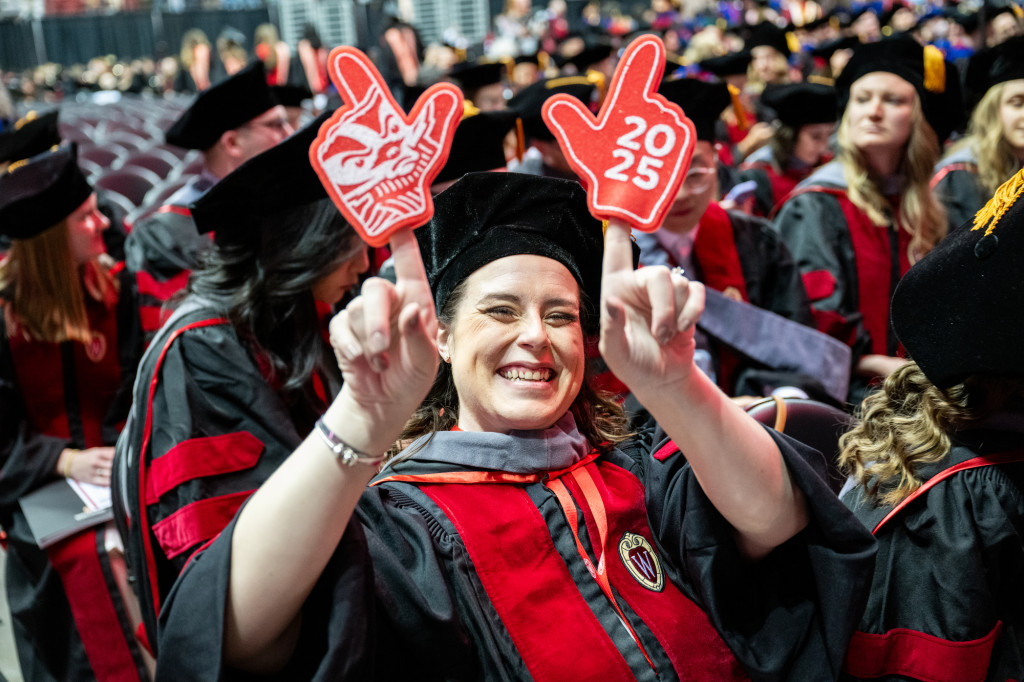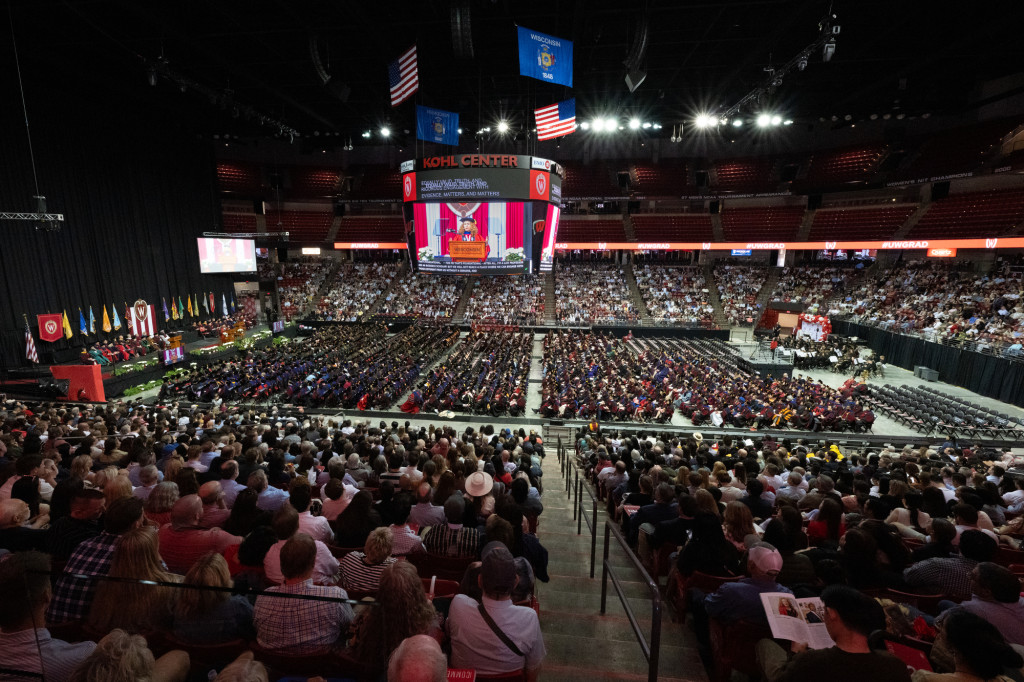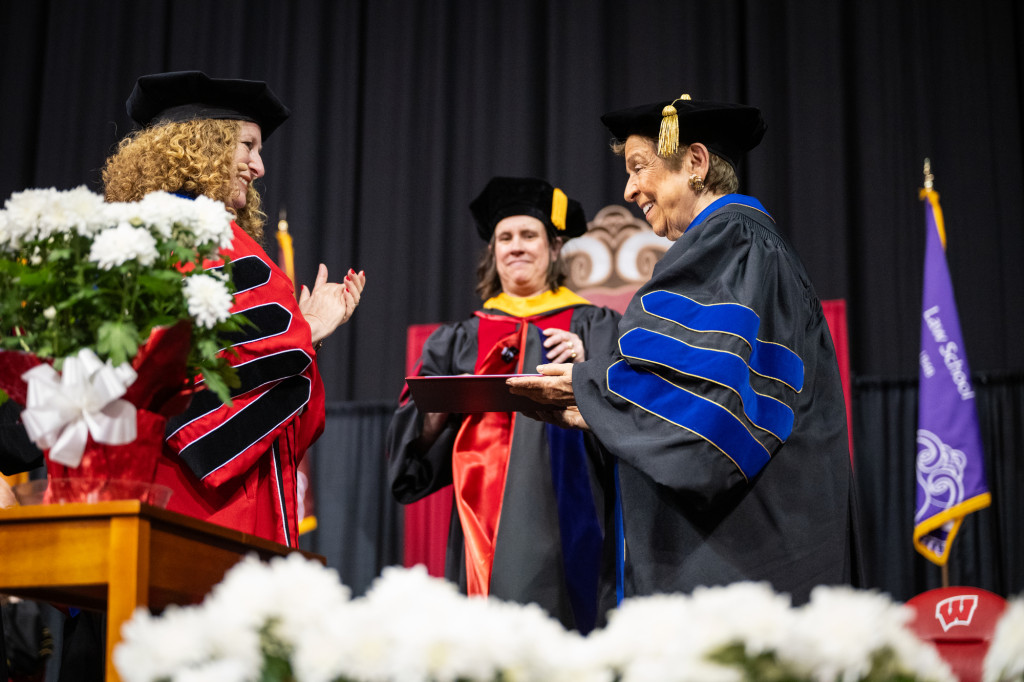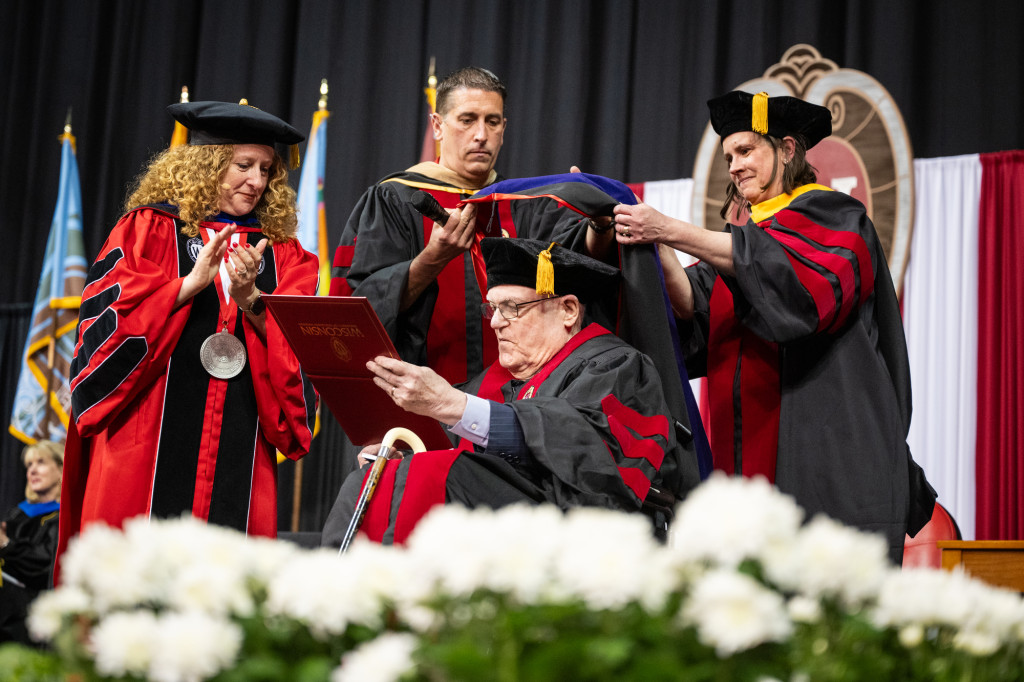Graduates embody excellence and goodness at commencement
Celebratory cheers, proudly smiling faces and a sea of silly-looking hats filled the Kohl Center on Friday evening as hundreds of University of Wisconsin–Madison graduate and professional degree recipients celebrated the culmination of years of work.
Among them was Shweta Chandrashekhar, an international student who describes her journey from being a special education practitioner in India to a PhD candidate at UW–Madison’s School of Education as serendipitous. For Chandrashekhar, being a teacher and a researcher are inseparable parts of her identity, one that UW–Madison helped her cement.
“I didn’t ever think that I’d achieve such intellectual and cerebral heights,” she says. “When I came to UW–Madison, it was a completely new world. It’s given me skills I didn’t think I could have.”
Chandrashekhar’s work in the Department of Rehabilitation Psychology and Special Education focuses on how to best prepare special education teachers. Getting teachers ready to enter the classroom involves a melding of theory and practice by many people across universities and K-12 schools. Chandrashekhar aims to cultivate discussions among these stakeholders so everyone involved in teacher preparation can identify issues and build solutions together. She believes giving people a say in their present and future is necessary to make meaningful change.
In addition to working closely with the Mary T. Kellner Teacher Education Center to mentor future teachers, one of the more defining experiences Chandrashekhar had at UW–Madison was an opportunity to return to India and present her work at a conference.
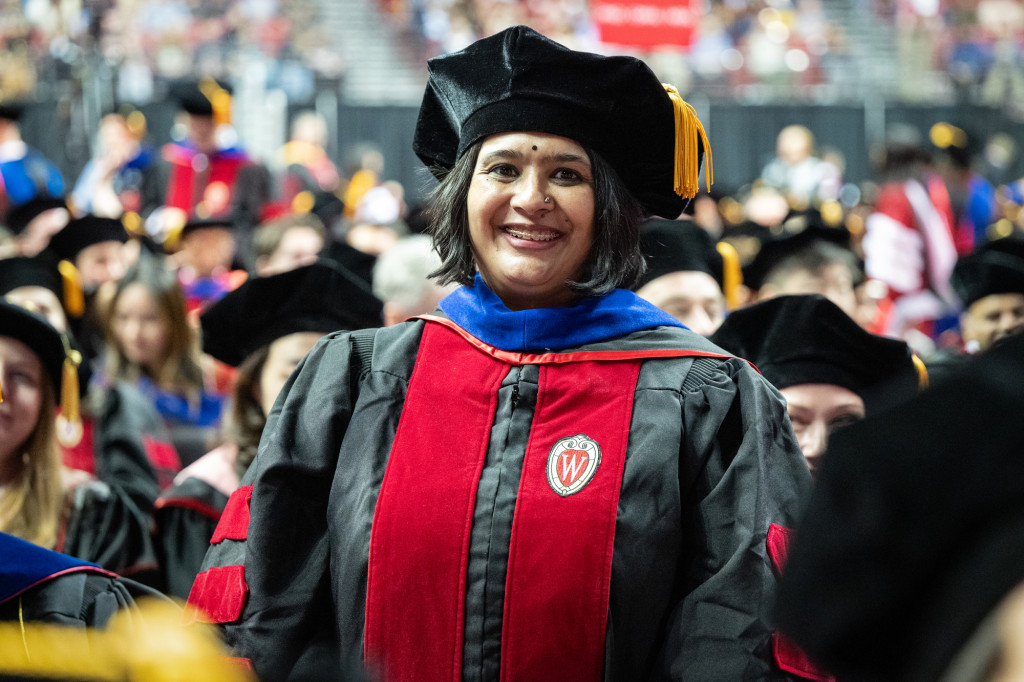
Shweta Chandrashekhar graduated with a PhD from the School of Education. Photo: Althea Dotzour
“I went on that trip as a scholar from UW–Madison, whereas my primary identity in India was as a practitioner,” she says. “Having brought those two identities together, it was so clear how as a UW–Madison student, we are really well-prepared. I feel so proud being a UW–Madison scholar.”
She is especially proud to get to celebrate with the lifelong friends she made in her cohort, with her advisor Professor Beverly Trezek, and with her father, who traveled from India for the ceremony.
Chandrashekhar was one of about 930 doctoral, MFA and medical professional students who participated on Friday. Altogether, nearly 10,500 students will celebrate bachelor’s and graduate degrees this weekend.
Chancellor Jennifer L. Mnookin commended the graduates for their hard work, and she recognized the integral support of their friends, family and colleagues in the audience. Acknowledging the unique and rapidly shifting challenges facing the country and the world, Mnookin reminded graduates of the importance of the work they have accomplished at UW–Madison and will continue to accomplish beyond graduation.
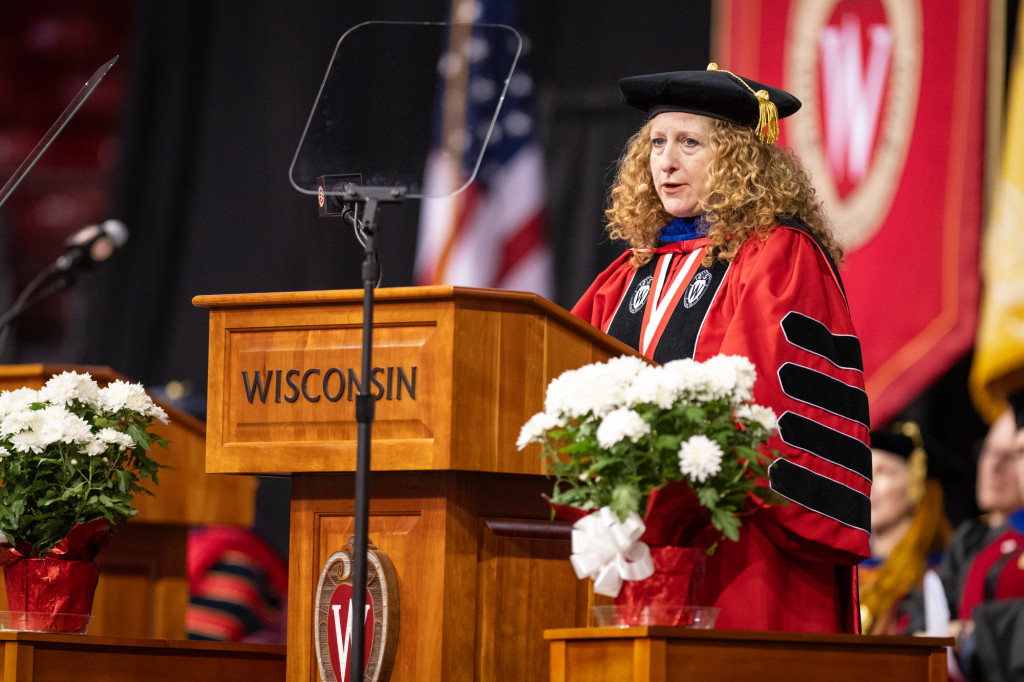
Mnookin speaks during the UW–Madison spring commencement ceremony held at the Kohl Center. Photo: Althea Dotzour
“This is a world that badly needs your intelligence, expertise, skills and talents, and your generosity of presence,” Mnookin said. “Because, no matter what your background or beliefs, or political persuasion, you are graduating into a world that urgently needs not just your excellence, but also your goodness.”
Mnookin recognized Shane Hoffman, the first graduate of the School of Medicine and Public Health’s accelerated program, which aims to address the dire need for physicians in rural areas. Chris Caldwell, a member of the Menominee Indian Tribe of Wisconsin and president of the College of Menominee Nation, was also recognized for receiving his PhD from the Nelson Institute of Environmental studies.
Mnookin highlighted the importance of universities as one of the few places on Earth where people of such diverse disciplines, walks of life and perspectives can come together to learn from one another, turning ideas into meaningful treatments, policies and societal changes.
“You are stepping forward into a world marked by complexity and change,” she says. “Yet, alongside change, there are equally extraordinary opportunities for innovation, for contribution, and — perhaps most importantly — for connection.”
This year’s honorary degree recipients are prime examples of the good that can come from connecting with people whose backgrounds and opinions may differ from their own. Both Jim Sensenbrenner and Donna E. Shalala were awarded honorary doctor of laws degrees.
Sensenbrenner is a lifelong public servant with the longest congressional career in Wisconsin’s history. He advanced policies that continue to shape the nation, strengthened voting rights, safeguarded civil liberties, enhanced national security and expanded disability protections — often bridging political divides to enact lasting reforms. He credits listening as the key to his success.
“Listening made me sharpen up my arguments to a jury, the legislature, congress and to voters come election time,” he said. “And it also got me respect from people across the aisle, and I respected them as well. With respect comes the ability to accomplish more.”
Shalala is not only a former chancellor of UW–Madison who made impressive advancements for campus research facilities, investments in faculty and athletics, but she is also a remarkable leader in government. She has a long record of transformative contributions to the nation, and she’s been recognized with the Presidential Medal of Freedom. As the longest-serving Secretary of Health and Human Services in U.S. history, she expanded health research and improved access to healthcare.
She reflected on the power encapsulated in the famous UW–Madison idea of “sifting and winnowing.”
“Who would have thought that an agricultural phrase would later symbolize academic freedom?” Shalala said. “This university is a beacon, reminding us that only by encouraging the fearless sifting and winnowing can progress be made for everyone on this Earth. Remember that wherever you go next.”
Tags: commencement

